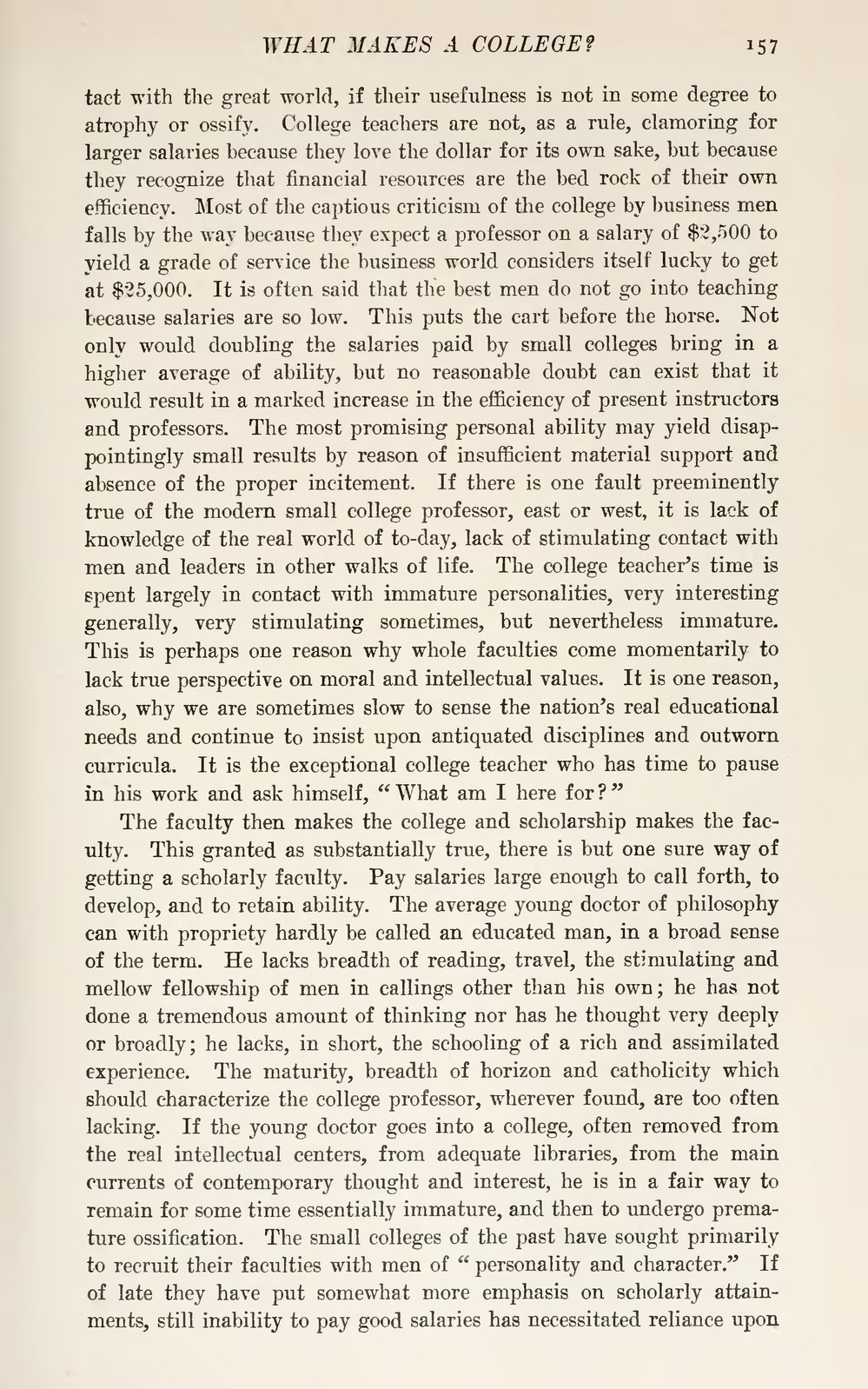tact with the great world, if their usefulness is not in some degree to atrophy or ossify. College teachers are not, as a rule, clamoring for larger salaries because they love the dollar for its own sake, but because they recognize that financial resources are the bed rock of their own efficiency. Most of the captious criticism of the college by business men falls by the way because they expect a professor on a salary of $2,500 to yield a grade of service the business world considers itself lucky to get at $25,000. It is often said that the best men do not go into teaching because salaries are so low. This puts the cart before the horse. Not only would doubling the salaries paid by small colleges bring in a higher average of ability, but no reasonable doubt can exist that it would result in a marked increase in the efficiency of present instructors and professors. The most promising personal ability may yield disappointingly small results by reason of insufficient material support and absence of the proper incitement. If there is one fault preeminently true of the modern small college professor, east or west, it is lack of knowledge of the real world of to-day, lack of stimulating contact with men and leaders in other walks of life. The college teacher's time is spent largely in contact with immature personalities, very interesting generally, very stimulating sometimes, but nevertheless immature. This is perhaps one reason why whole faculties come momentarily to lack true perspective on moral and intellectual values. It is one reason, also, why we are sometimes slow to sense the nation's real educational needs and continue to insist upon antiquated disciplines and outworn curricula. It is the exceptional college teacher who has time to pause in his work and ask himself, "What am I here for?"
The faculty then makes the college and scholarship makes the faculty. This granted as substantially true, there is but one sure way of getting a scholarly faculty. Pay salaries large enough to call forth, to develop, and to retain ability. The average young doctor of philosophy can with propriety hardly be called an educated man, in a broad sense of the term. He lacks breadth of reading, travel, the stimulating and mellow fellowship of men in callings other than his own; he has not done a tremendous amount of thinking nor has he thought very deeply or broadly; he lacks, in short, the schooling of a rich and assimilated experience. The maturity, breadth of horizon and catholicity which should characterize the college professor, wherever found, are too often lacking. If the young doctor goes into a college, often removed from the real intellectual centers, from adequate libraries, from the main currents of contemporary thought and interest, he is in a fair way to remain for some time essentially immature, and then to undergo premature ossification. The small colleges of the past have sought primarily to recruit their faculties with men of "personality and character." If of late they have put somewhat more emphasis on scholarly attainments, still inability to pay good salaries has necessitated reliance upon
